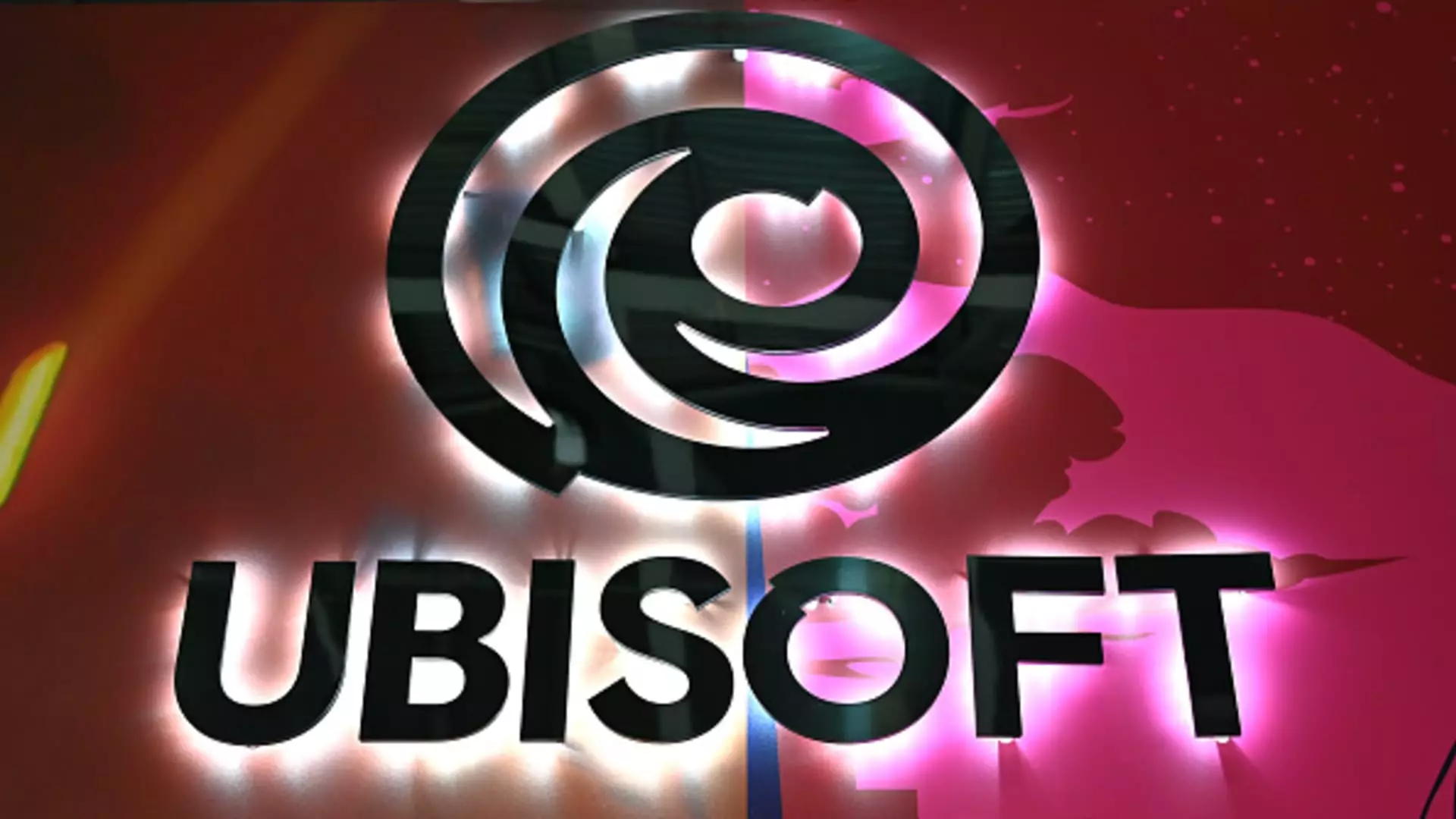Ubisoft, the renowned French video game publisher, has recently been the center of attention in the gaming industry following a significant spike in its stock value. On Friday, shares soared by over 30%, largely driven by speculation surrounding a possible buyout involving Tencent, one of the largest tech companies in Asia, and Ubisoft’s founding Guillemot family. This article delves into the context behind this surge, explores the implications of a potential buyout, and examines the challenges facing Ubisoft as it navigates a tumultuous gaming landscape.
The sharp increase in Ubisoft’s stock price came after a report from Bloomberg News which indicated that Tencent and the Guillemot family, both existing minority shareholders, were considering a range of options including the possibility of taking the company private. This comes in light of Ubisoft’s market value, which has plummeted by more than 50% over the course of this year, raising concerns among investors about the firm’s performance.
As shareholders grapple with the future of the company, the talk of a potential buyout has created an atmosphere of uncertainty mixed with optimism. This speculation is not surprising, considering the financial distress reflected in Ubisoft’s recent performance. The firm is facing increasing pressure to revitalize its portfolio of games amidst mounting competition in the industry. The stock price recovery hints at the hope that a strategic reorganization—such as a buyout—could usher in a new era for the beleaguered company.
Performance Woes and Executive Challenges
Despite the positive stock rally, the core issues plaguing Ubisoft remain unaddressed. Recent announcements regarding the delay of highly anticipated titles like “Assassin’s Creed Shadows” have compounded the frustrations of both players and investors alike. The postponement, officially pushed back to February 2025, is attributed to unforeseen demand for another title—”Star Wars Outlaws”—which failed to meet expectations after its August launch. Furthermore, the company lowered its net bookings guidance for fiscal year 2025, signaling ongoing struggles to entice consumers and remain profitable.
In light of these circumstances, Ubisoft’s leadership, led by chief executive Yves Guillemot, is under scrutiny, particularly after an activist investor, AJ Investments, has rallied support among other shareholders for significant changes at the top. Their push for a leadership overhaul reflects broader dissatisfaction with the current management’s effectiveness in executing a turnaround strategy. This dynamic poses a serious question about whether the current executive team has the expertise necessary to navigate the complex challenges embedded in today’s gaming environment.
Ubisoft’s difficulties are not isolated but rather part of a wider industry trend. The global gaming market is projected to grow by only 2.1% in 2024, as opposed to the explosive growth witnessed during the early pandemic years. This slowdown means that gaming companies must innovate and adapt quickly to changing consumer behaviors, which currently lean towards established titles over new releases. James Lockyer, a technology analyst from Peel Hunt, notes that the increasing competition for gaming space—driven by rising living costs and an overflow of choice—has created a challenging revenue environment for publishers.
As consumers tighten their belts, discretionary spending on gaming is being scrutinized, leading developers to reassess how they approach both game development and marketing. The shift in focus to classic titles presents a dilemma for Ubisoft; it must find a way to reinvigorate interest in its franchises while launching promising new projects. The traction garnered by competing titles can siphon away the attention that Ubisoft desperately needs to regain.
As discussions of a potential buyout circulate amidst fiscal struggles, the future for Ubisoft remains uncertain. While the speculation regarding Tencent and the Guillemot family may excite investors momentarily, sustainable change will rely on concrete actions and innovative strategies from Ubisoft’s management. A successful buyout could indeed provide the capital and direction necessary for revitalizing the brand, but it won’t remedy the underlying structural issues that the company must resolve to achieve long-term growth.
Ubisoft’s current predicament highlights the complexities of navigating a rapidly evolving gaming marketplace. The interplay of shareholder interests, executive accountability, and evolving consumer expectations creates a delicate balance that the company must address in the coming months. Only time will tell whether a buyout will serve as the catalyst for rebirth or if Ubisoft will continue to grapple with its challenges independently.

